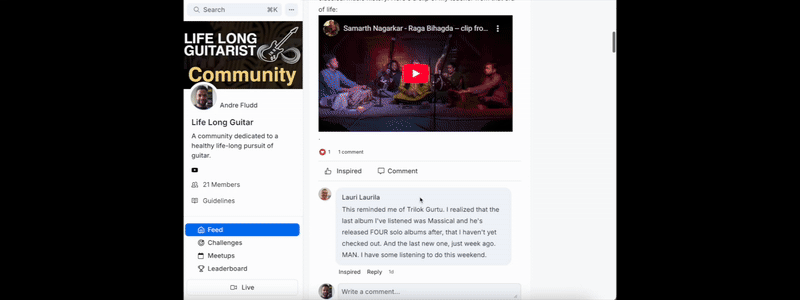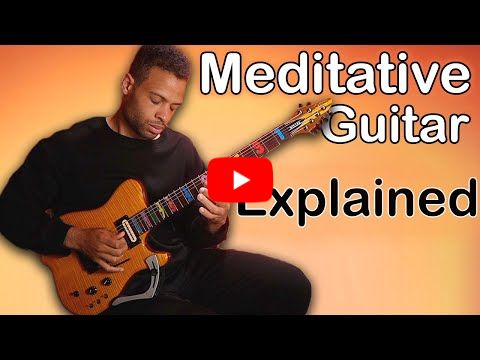The Most Important Guitar Practice
Hey guitarists,
Normally, I don’t recycle topics between my YouTube channel and this newsletter. But this one is different. This is something I believe every serious guitarist needs to hear—whether you’re a beginner or a seasoned player burning out in silence.
|
I call it Meditative Guitar Practice.
And it’s changed everything.
Not just how I practice.
How I feel when I play.
How I relate to the instrument.
And honestly—how I relate to myself.
Why We Need This
We live in an age where distraction is the default. Everything around us is built for stimulation, speed, and endless scrolling. And even when we do slow down, our minds rarely follow.
This doesn’t just affect how we work. It changes how we play. And eventually, how we feel about the guitar.
Many guitarists don’t burn out because of a lack of passion or talent. They burn out because their time with the instrument no longer feels nourishing. The guitar becomes another thing to manage instead of something to enjoy.
Meditative Guitar Practice is an antidote to that.
It’s a return to depth. To connection. To presence.
The Practice That Saved My Playing
There was a stretch of years when guitar felt like a burden. I kept playing because it was my degree, my work, my identity. But there was no joy.
It wasn’t until I stopped chasing progress that I started rediscovering peace in my playing.
That’s what Meditative Guitar Practice gave me. A reliable way to reset my mindset and reconnect with the reasons I started playing in the first place.
This is about playing with intention and awareness, not repetition or drills. It’s about being where your hands are.
And over time, it doesn’t just make you a better guitarist. It makes you a more present person.
What It Is (And Isn’t)
Meditative Guitar Practice combines mindfulness with music. You pick one small, clear task—something simple but challenging—and you give it your full attention for 5 to 10 minutes.
No skipping around. No background noise. Just you, your instrument, and your awareness.
-
It might be two chords you want to clean up.
-
A scale you’re trying to visualize.
-
A phrase that never feels quite right.
Whatever it is, the goal isn’t speed or mastery. The goal is presence.
You listen to the note. You feel the string. You watch your fingers move.
And when your mind drifts—because it will—you bring it back.
That moment of return is the real practice.
Why It Works
Because it mirrors how we actually grow.
Growth doesn’t happen in big dramatic jumps. It happens when we pay attention.
And even more importantly—this kind of mindful attention brings joy back to the guitar.
The frustration fades. The pressure softens. And suddenly, music feels like music again.
Try It Today
-
Choose one musical element you understand, but can’t yet do with ease.
-
Set a timer for 5–10 minutes.
-
Focus on how it sounds, how it feels, and what it looks like.
-
When your thoughts wander, bring them back to sound, sensation, or sight.
If you want a drone track to use for this, I have free ones in every major and minor key. You’ll find them linked in the YouTube video description.
This practice won’t replace everything else you do. But it can become a kind of mental reset—something you return to when you’re overwhelmed, burned out, or feeling distant from the music.
Simple doesn’t mean easy. But it can still be profound.
The Life Long Guitarist Program
Although the Life Long Guitarist Program is currently closed to new members, the momentum inside the community has never been better.
We’ve been sharing music, staying positive, and supporting each other—all while making some truly inspiring progress. The conversations range from jazz phrasing to metal tone to mindfulness… and everyone’s showing up with heart.

Last time, spots sold out in just a few days—so if this sounds like the kind of environment you’d want to be part of, be sure to join the waitlist here to get early access when doors reopen on May 29th.
Thanks for being part of this amazing community.
— Andre


